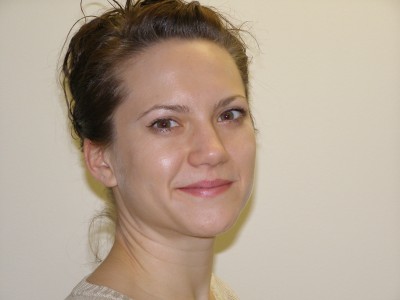Affiliated Faculty
 Mark Moss, Ph.D.
Mark Moss, Ph.D.
Dr. Moss received his doctorate in Psychology from Northeastern University and completed postdoctoral training at Beth Israel Hospital, Harvard Medical School in Neuroanatomy and Neuropsychology. He joined the Department of Anatomy and Neurobiology in 1982 and has served as its Chairman since 1998. Together with Dr. Douglas Rosene, Dr. Moss is co-director for the Laboratory for Cognitive Neurobiology. His studies focus on the neurobiology of learning and memory in non-human primate models, particularly with respect to aging and age-related disease. Specific interests include (1) the interaction of the prefrontal cortices with the medial temporal lobe limbic system in cognition; (2) the separate and combined effects of age and hypertension on cognition and integrity of the blood-brain barrier in a non-human primate model of hypertensive cerebrovascular disease and (3) parallel studies in normal aged humans and patients with MCI and Alzheimer’s disease. Techniques include automated behavioral assessment, functional and structural MR imaging, and an array of immunocytochemical and related anatomical-morphological techniques. Dr. Moss is also a recipient of an NIH MERIT award for his work on aging and hypertension.
Dr. Moss is the leader of the Head and Neck section of the Medical Gross Anatomy Course, and co-directs graduate courses in the Neurobiology of Learning and Memory, Neurobiology of Aging, and Cognitive Neuroscience.
Don DeRosa, Ed.D.
Director of CityLab
Research Assistant Professor, Department of Biochemistry
Clinical Assistant Professor, School of Education
Don DeRosa has been at CityLab since the program began in 1992. His responsibilities include the curriculum development, program design, teaching, staff development and management of the CityLab MobileLab.
Don has several years of teaching experience at both the pre-college and college level. Since 1984, he has taught biology, chemistry and earth science to students in grades 7-12, Anatomy and Physiology at Mass Bay Community College and science education courses at Bridgewater State College. He has been a member of the Microcosmos curriculum development team at Boston University since 1989. Don has also presented many teacher workshops in biotech education in both the U.S. and Europe. In addition to his responsibilities at CityLab, he has an appointment at the School of Education where he teaches methods courses in science education.
Don has a B.S. in Biology from the University of Vermont, an M.Div. from St. John’s Seminary, an M.A.T. in Science Education and an Ed.D. in Curriculum and Teaching from Boston University.
Catherine Grgicak, Ph.D.
Dr. Grgicak is an instructor for the Biomedical Forensic Sciences Program at Boston University School of Medicine and teaches courses in forensic DNA analysis. Her forensic DNA training was obtained at the Alabama Department of Forensic Sciences and continued at Cellmark Diagnostics in Germantown MD. Her current research focuses on optimizing DNA recovery during extraction, development of extraction procedures aimed at detecting and separating cells from multiple sources as well as developing cost effective DNA quantification methods.
 Carla Romney, Ph.D.
Carla Romney, Ph.D.
Director of Research for CityLab
Carla joined the CityLab team in 2000 to combine her passions for science, education, and business. She first entered a research laboratory through a National Science Foundation Student Science Training Program while a high school student in New York. One day after her high school graduation, she began work in a cancer research laboratory in NY, an experience that ultimately influenced her career path. She spent summer and winter vacations during her college years investigating the roles of viruses and biochemical modulators in cervical cancer. After graduating from Tufts University with degrees in electrical engineering and Spanish, she began a long graduate school path that included studies at Dartmouth College (Masters in Biomedical Engineering) and University of Rochester (Masters of Business Administration). While in Rochester, Carla worked as an engineer for a surgical laser start-up company that designed devices to facilitate minimally invasive surgical procedures. She then decided to return to school to study cancer biology and earned her D.Sc. from Harvard University in 2000.
Carla has a long-standing interest in education. During the past 13 years, she has helped thousands of students to prepare for standardized entrance exams at all levels and has volunteered for several programs that encourage women to study science and engineering. She is now running Symmetry Learning, a company that develops and markets an innovative inquiry-based science education program for grades K-8.



